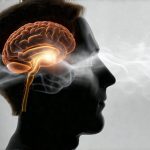Our modern lifestyles often prioritize speed and efficiency, extending even to something as fundamental as eating. We grab meals on the go, scarf down food between meetings, and rarely take the time to truly savor what we consume. While seemingly harmless, this habit of hurried eating has profound consequences that extend far beyond digestion – it significantly disrupts the intricate communication network between our gut and brain, known as the gut-brain axis. This disruption can impact not only physical health but also mental wellbeing, mood regulation, and even cognitive function. Understanding how quickly we eat affects this vital connection is crucial for cultivating healthier habits and supporting overall health.
The gut-brain axis isn’t a one-way street; it’s a complex bidirectional communication system. The gut microbiome – the trillions of bacteria residing in our digestive tract – sends signals to the brain via several pathways, including the vagus nerve, immune system, and endocrine system. Conversely, the brain influences gut function through neurotransmitters, hormones, and even psychological stress. This constant exchange is essential for maintaining homeostasis, regulating appetite, influencing mood, and supporting optimal bodily functions. When we eat in a hurry, we short-circuit this delicate process, hindering accurate signaling and ultimately impacting both physical and mental health. The consequences are far reaching, as the gut isn’t simply a digestive organ; it’s an active participant in our overall wellbeing. If you find yourself anxious about eating with a sensitive gut, consider how to handle the fear before meals.
The Mechanics of Hurried Eating & Initial Gut Disruption
Hurried eating fundamentally alters how our bodies process food. It bypasses several crucial steps necessary for proper digestion and nutrient absorption. Chewing is perhaps the most overlooked aspect – when we eat quickly, we often don’t chew our food thoroughly enough. This leads to larger food particles entering the small intestine, requiring significantly more digestive effort from the body. The initial stages of digestion actually begin in the mouth with saliva containing enzymes that start breaking down carbohydrates. Insufficient chewing means less enzymatic action and a greater burden on the stomach and intestines.
Beyond inadequate chewing, rapid eating inhibits the release of essential digestive hormones. For example, cholecystokinin (CCK) – a hormone crucial for signaling fullness and aiding fat digestion – relies on adequate time in the upper digestive tract to be released effectively. Similarly, gastric inhibitory polypeptide (GIP), which regulates insulin secretion, is also dependent on slower, more deliberate eating. These hormonal signals are vital for informing the brain about the food we’ve consumed, regulating appetite, and ensuring proper nutrient absorption. When these signals are diminished or delayed due to hurried consumption, our brains don’t receive accurate information about satiety, potentially leading to overeating and weight gain. Understanding how to read restaurant menus can also help you make better food choices.
Furthermore, rapid eating compromises the gut microbiome itself. The types of foods we consume directly influence the composition of our gut bacteria. But how we eat matters just as much. When food arrives undigested or partially digested in large boluses (masses), it creates an environment that favors less beneficial bacterial strains and disrupts the delicate balance within the microbiome. This imbalance, known as dysbiosis, can contribute to inflammation, impaired immunity, and a host of other health problems.
Impact on Digestive Processes & Nutrient Absorption
The consequences of hurried eating extend beyond hormonal imbalances and microbial disruption; they directly impact the mechanical aspects of digestion. A poorly chewed food bolus forces the stomach to work harder to break down larger particles. This not only increases digestive effort but can also lead to symptoms like bloating, gas, indigestion, and even heartburn. The small intestine then faces a similar challenge, struggling to effectively absorb nutrients from incompletely digested food.
- Reduced nutrient absorption leads to deficiencies: essential vitamins, minerals, and macronutrients aren’t properly extracted from the food we eat.
- Inflammation increases: Undigested food particles can trigger an immune response in the gut, leading to chronic inflammation.
- Impaired motility: The digestive system may struggle to move food through efficiently, resulting in constipation or diarrhea.
The process of fermentation by gut bacteria is also affected. Undigested carbohydrates reach the colon where they’re fermented by gut microbes, producing short-chain fatty acids (SCFAs) which are beneficial for gut health and overall wellbeing. However, with hurried eating and incomplete digestion, this fermentation can become unbalanced, leading to excessive gas production or the growth of undesirable bacterial species. Ultimately, a disrupted digestive process means our bodies aren’t getting the nourishment they need from food, even if we’re consuming what appears to be a healthy diet. For children experiencing constipation, building trust in food is key.
The Vagus Nerve & Brain Communication Breakdown
The vagus nerve is the primary communication pathway between the gut and brain, carrying signals in both directions. It plays a critical role in regulating digestion, heart rate, breathing, and even mood. Hurried eating significantly diminishes the effectiveness of this vital connection. When food is consumed quickly, the digestive process is rushed, reducing the time for the vagus nerve to accurately sense and transmit information about gut fullness and nutrient content to the brain. This leads to a delay in satiety signals, making it harder to recognize when we’re truly full.
- Vagal tone decreases: Chronic hurried eating can weaken the vagus nerve over time, lessening its ability to regulate bodily functions effectively.
- Brain receives inaccurate signals: The lack of precise information from the gut impairs the brain’s ability to modulate appetite and energy balance.
- Emotional regulation affected: The vagus nerve also plays a role in emotional regulation; disruption can contribute to increased stress, anxiety, and even depression.
Furthermore, the act of mindful eating – slowing down and paying attention to the sensations of hunger and fullness – stimulates vagal activity. This stimulation promotes relaxation and reduces stress. Hurried eating bypasses this opportunity for vagal activation, leaving us disconnected from our body’s natural cues. Restoring a healthy gut-brain connection requires consciously slowing down, chewing thoroughly, and savoring each bite to allow the vagus nerve to function optimally. It is also important to avoid reclined positions after eating.
Mental Wellbeing & Cognitive Function – A Downstream Effect
The disruption of gut-brain communication due to hurried eating isn’t limited to digestive issues; it has significant implications for mental wellbeing and cognitive function. The gut produces a substantial amount of neurotransmitters, including serotonin (the “happy hormone”) and dopamine (involved in motivation and reward). An unhealthy gut microbiome – often resulting from hurried eating habits – can impact neurotransmitter production, contributing to mood disorders like anxiety and depression.
- Serotonin production diminished: A dysbiotic gut struggles to produce adequate levels of serotonin, impacting mood regulation.
- Brain fog and impaired concentration: Inflammation caused by an imbalanced gut microbiome can affect brain function, leading to cognitive impairment.
- Increased stress response: Disrupted gut-brain communication amplifies the body’s stress response, making it harder to cope with challenges.
Moreover, the chronic stress associated with hurried eating – and the resulting digestive discomfort – further exacerbates these mental health issues. The brain becomes preoccupied with physical symptoms, leading to a cycle of anxiety and negative thinking. It’s important to remember that our gut and brain are inextricably linked, and supporting one is essential for supporting the other. Cultivating mindful eating habits isn’t just about improving digestion; it’s about nurturing overall wellbeing and fostering a healthier relationship with food and your body. Consider keeping reflux in check during stressful times, as stress can exacerbate digestive issues. Finally, taking a walk after eating may aid digestion and reduce discomfort. Also be mindful that eating in front of a screen can also negatively impact your digestion.


















